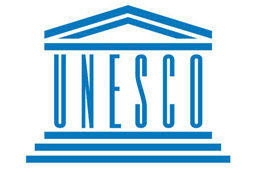If we are to achieve the Sustainable Development Goals by 2030, in particular the goal
of achieving equitable and quality education, we need relevant and innovative
pedagogies that prepare the learners of today for the transformation needed by society
in a rapidly changing world. Teachers are one of the pillars on which this transformation
depends.
Research has repeatedly found that teachers are the single most important school-level
variable for improving student outcomes. The centrality of teachers to the future of
education was reaffirmed at the United Nations Transforming Education Summit last
year, culminating in the establishment of the High-Level Panel on the Teaching
Profession. This renewed focus on teachers is timely, as the world currently faces a
severe global teacher shortage.
Halfway to the Sustainable Development Goals, 44 million teachers still need to be
recruited globally to meet universal primary and secondary education needs by 2030,
with 15 million of those required in sub-Saharan Africa, according to newly released data
from UNESCO and the Teacher Task Force. Rural, marginalized, and forcibly displaced
communities often face the most chronic shortages of qualified teachers.
The fundamental cause of this global shortage is the diminishing attractiveness of the
teaching profession, which undermines the recruitment of new teachers and produces
high levels of attrition amongst those in service, especially within the first three to five
years of entering the workforce. Teachers can typically expect to be paid less than if
they entered other professions requiring similar levels of qualification, whilst also finding
themselves increasingly overburdened by additional responsibilities and administrative
tasks. Due to these poor working conditions, teaching is often viewed negatively as a
‘profession of last resort’, and teachers are not given the recognition and status that they
deserve.
The report from the International Commission on the Futures of Education – Reimagining
our Futures Together: A new social contract for education – recommends that the
teaching profession be reimagined as a collaborative profession.
To do so, it is essential to shift the way in which we perceive teachers: they should be valued as key agents in
renewing the social contract for education. Teachers are lifelong learners, catalysts for
change, creators and facilitators of knowledge, and mentors who engage students and
support them in understanding the complex challenges and realities of our world today.
Today, on World Teachers’ Day, we celebrate teachers’ critical role and the great
importance of reversing the global teacher shortage. We call upon countries to ensure
that teaching is transformed everywhere into a more attractive and valorised profession
where teachers are valued, trusted, and adequately supported to meet the needs of
every learner. Bold actions must be taken, if we are to reverse the current decline and
successfully increase teacher numbers.









